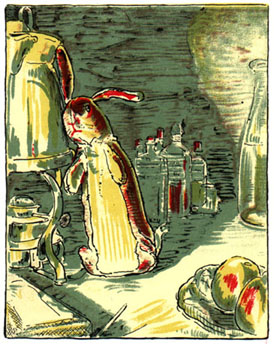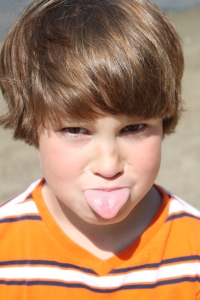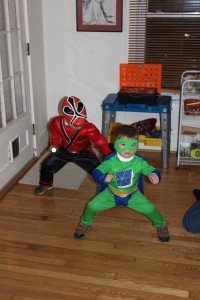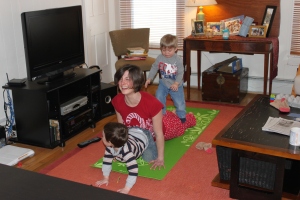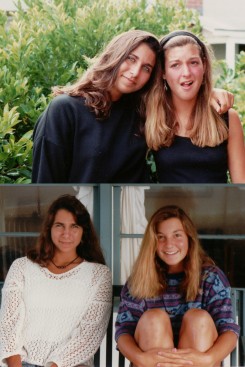 Growing up girl, you’re never quite sure who has your back. This doesn’t become crystal clear until you’re an awkward preteen. Up until then, you believe other girls are on your side, fighting a common enemy. I think the enemy was boys, but I can’t remember now.
Growing up girl, you’re never quite sure who has your back. This doesn’t become crystal clear until you’re an awkward preteen. Up until then, you believe other girls are on your side, fighting a common enemy. I think the enemy was boys, but I can’t remember now.
But before the preteen angst, before the concerns about whether pegging my Guess jeans was a good idea, there was simply friendship. I envision it as a clear blue pond. One day, you walk into a clearing holding your mother’s hand and see sun glinting off the pond. Clouds are reflected in the pond, slim pine trees, reedy grasses on the banks. Then you notice another little girl on the bank across from you. She’s holding her mother’s hand, too. You look up to see whether you mom has noticed that you’re not alone. It’s hard to tell; she grips your hand a little tighter and waves to the other mother. It’s reassuring. You know this means you’ll safely get to that other shore and meet that other little girl. You’re scared, but you hold that warm 20-something hand and get moving.
When you meet each other on the opposite bank, the mothers do their thing. They talk about things they care about. You stare at the other girl (or hide behind your mother’s leg and stare), and say nothing. You turn toward the pond. The other girl follows your gaze. You see a frog, a fish, a flower. You turn back and look at each other again. You smile.
Then you clasp small hands and jump in.
When Sarah and I jumped in, we couldn’t even look at each other. We were babies barely able to hold our heads up. What was so clear and blue about the beginning was that it was there before either of us had formed our own identity. To this day, I still see Sarah as my other half—the heads to my tails.
Thirty seven years ago, I was four months old and Sarah was less than a month old. Today, we have four children between us: three boys and a girl. We are the women holding the small hands and walking to other sides of the pond.
Time and space do strange things. For the majority of those 37 years, we’ve been apart more than together. We went to different schools, had different friends, never double-dated. Yet we both played sports and instruments. We were both band geeks (though since Sarah played drums, she’s really more badass band girl than geek). Two sides of the coin. I envied her stable, calm household. She liked coming to the beach with us every summer. I remember eating red-skinned natural hot dogs at her house, and unsalted, unsugared peanut butter, and rubbing calendula on scrapes.
There were a few times in highschool that our separate paths crossed. I somehow became friends with friends of hers. I ended up at a party hosted by the other high school, another country where I only knew one person, and I remember freaking out because—here I was, being someone I wanted to be and no one knew—and there was Sarah. The one person in the world who knew exactly who I was and had been since I was a baby. She didn’t blow my cover.
At the party, I knew Sarah was a popular kid. She is tall, exotic. She was a star athlete. At the beach one summer, we were cruising the main road, tanned and giddy and in 8th grade. Night was the only time of the North Carolina day when we didn’t sweat. We met two boys. The next day, they ran into us on the beach and we swam in the waves and made small talk. Then, one boy suddenly waxed poetic about Sarah’s eyes. They were the color of the eyes of that model. You know, the dark smoldering one rolling around in the surf in that video of that Chris Isaak song.
“What about her eyes? What color are they?” Sarah asked, laughing sideways, smiling at me.
“Yours? I’d call them shit brown,” he said.
I will never let her forget that. But, I wasn’t really mad. The boys were silly and immature. Sarah and I were wiser in our friendship. We somehow knew that each of us had qualities worthy of admiration, even if sometimes we couldn’t recognize those things ourselves.
I look back and remember Sarah, thin and haunted and hurting from her parents’ divorce. I wasn’t there for her then, like I could have been. But I listened and admired in her the courage to face hard, painful things. At the time, I was just stepping into the real world, but I was still in a child-like cocoon. Nothing seemed too bad or too hard. I don’t think I could grasp something as real as losing your family and your place in that family. I was too busy looking out for myself.
At middle age, I think more about death. Middle age sounds wrong. The middle ages, people eating with their hands and spears and throwing bones on the floor. Wiping grease stained mouths on sleeves. It doesn’t sit well. I don’t want to be close to 40. But here I am.
Some things never change. Sarah and I dove into the clear blue pond so long ago, but I still don’t live near her, or see her every weekend, or even talk to her on the phone every night. My kids and her kids aren’t best friends. We don’t golf together or have girls’ nights out.
I wonder what it would be like to be like those other bosom buddies. The ones who share everything and are closer than sisters. I don’t think about death these days like it’s a theoretical proposition. It’s all up in my face since my brother killed himself. I walk with it outside; we walk together and talk about what’s important in life. Death laughs at my neuroses and anxiety about work, money, success, failure. The sound of Death laughing is one part sugar and three parts vinegar. A bubbling, astringent gastrique.
There is one thing Death doesn’t laugh about: The living. The actual flesh and blood living. People who breathe your air every day, or once every three years. “Don’t waste your time on anything else.”
I don’t know what I will do when I no longer have the other side to my coin, the smoldering ice blue to my shit brown eyes. So I won’t waste any more time.
Happy (belated as always) birthday, sweet Sarah E.


